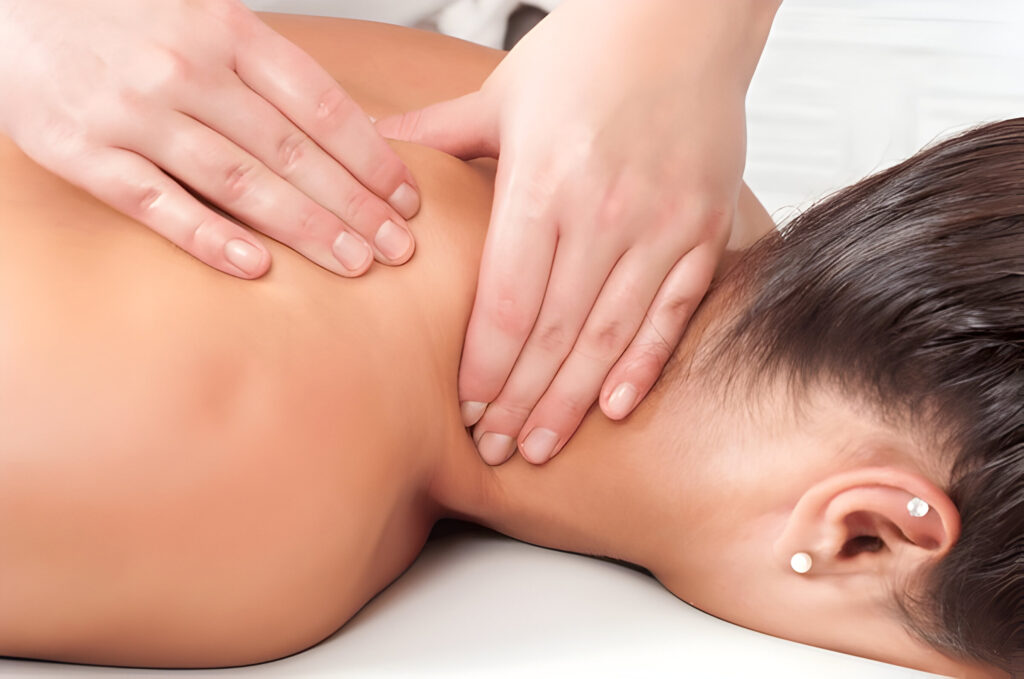
The relentless work demands, personal relationships, and daily responsibilities can significantly affect mental and physical well-being. Amidst various coping mechanisms, massage therapy has emerged as a powerful tool to alleviate the burdens of anxiety and stress, offering a holistic approach to wellness. Massage therapy, an ancient practice with roots in diverse cultures, involves manipulating soft tissues to promote relaxation, reduce muscle tension, and enhance overall health. Unlike transient remedies, massage therapy delves deeper, addressing both the symptoms and underlying causes of stress and anxiety. The physical touch and skilled techniques employed by massage therapists can create a sanctuary of calm, allowing individuals to disconnect from their worries and reconnect with their bodies. One primary way massage therapy combats stress is by reducing the levels of cortisol, the body’s primary stress hormone. Elevated cortisol levels are associated with various health issues, including weakened immune function, weight gain, and disrupted sleep patterns. Regular massage sessions can help lower cortisol levels, promoting a state of relaxation and balance. This biochemical shift not only mitigates the immediate feelings of stress but also contributes to long-term health benefits, fostering resilience against future stressors.
Furthermore, massage therapy stimulates the production of endorphins, the body’s natural painkillers and mood elevators. These endorphins play a crucial role in enhancing feelings of well-being and happiness, counteracting the negative emotions associated with anxiety. As individuals receive massages, the release of endorphins creates a soothing effect, diminishing the intensity of anxious thoughts and fostering a positive mental state. This biochemical interplay underscores the profound impact massage therapy can have on emotional health. Beyond its biochemical effects, massage therapy offers a unique form of mindful presence. In a massage session, individuals are encouraged to focus on their bodily sensations, promoting a state of mindfulness that diverts attention from external stressors. This practice of being present cultivates mental clarity and reduces the incessant cycle of worry that often accompanies anxiety. By fostering mindfulness, massage therapy not only alleviates immediate stress but also equips individuals with the mental tools to manage future challenges more effectively.
The physical benefits of massage therapy also contribute significantly to stress reduction. Chronic muscle tension, a common manifestation of stress, can lead to discomfort and exacerbate feelings of anxiety. Through targeted manipulation of muscles and soft tissues, massage therapy alleviates tension, promoting relaxation and ease. This physical release complements the emotional relief, creating a harmonious balance that enhances overall well-being. As muscles relax, the body 하남출장마사지 can better respond to stress, reducing the likelihood of tension-related ailments. Massage therapy also fosters a sense of connection and support, which is vital in combating feelings of isolation often linked with anxiety. The therapeutic touch provided during a massage session can evoke feelings of care and nurturance, reinforcing the individual’s sense of self-worth and belonging. This human connection is instrumental in building emotional resilience, as it reminds individuals that they are supported and valued. In a world where isolation is increasingly common, the relational aspect of massage therapy offers a comforting antidote to loneliness and anxiety.
Moreover, different types of massage therapy cater to various aspects of stress and anxiety management. Techniques such as Swedish massage emphasize gentle, flowing movements that promote deep relaxation, while deep tissue massage targets specific areas of tension, providing relief from chronic muscle pain. Aromatherapy massage incorporates essential oils to enhance the sensory experience, further amplifying the calming effects. By offering a range of modalities, massage therapy can be tailored to meet the unique needs of each individual, ensuring a personalized approach to stress reduction. Incorporating massage therapy into a regular wellness routine can lead to sustained benefits. Consistency is key, as the cumulative effects of regular massages can lead to lasting changes in both physical and emotional health. Establishing a routine not only provides ongoing relief from stress but also reinforces healthy self-care habits. As individuals prioritize their well-being through regular massage sessions, they cultivate a proactive approach to managing anxiety, fostering a healthier, more balanced life.
Additionally, massage therapy complements other stress-reduction practices, such as meditation, exercise, and proper nutrition. By integrating massage into a broader wellness strategy, individuals can address stress from multiple angles, enhancing the overall effectiveness of their efforts. This comprehensive approach ensures that both the mind and body are supported, creating a synergistic effect that amplifies the benefits of each individual practice. As part of a holistic wellness plan, massage therapy plays a pivotal role in fostering enduring mental and physical health. The accessibility of massage therapy has also improved, making it easier for individuals to incorporate this beneficial practice into their lives. With a variety of settings available, from professional spas and clinics to at-home services, massage therapy can be tailored to fit different lifestyles and preferences. This flexibility ensures that more people can experience the profound benefits of massage, regardless of their schedules or circumstances. As awareness of the connection between massage therapy and stress reduction grows, more individuals are likely to embrace this therapeutic practice as a vital component of their self-care regimen.
Finally, massage therapy stands out as a highly effective means of reducing anxiety and stress, offering a blend of physical relaxation and emotional support. Its ability to lower cortisol levels, enhance endorphin production, promote mindfulness, and alleviate muscle tension makes it a comprehensive solution for those seeking relief from the burdens of modern life. By fostering a sense of connection and integrating seamlessly with other wellness practices, massage therapy provides a sustainable path to enhanced well-being. As the demands of life continue to evolve, the timeless practice of massage therapy remains a steadfast ally in the quest for peace, balance, and inner harmony.